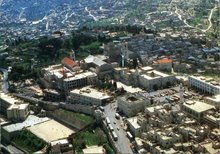"While one might find the main divisions and overlaps between the various Salafist branches and outlooks confusing, it is palpably clear that the Salafi genie has burst from the lantern that the security agencies had once kept tightly corked. Although the regime had used the Salafis in the 1980s and 1990s as a means to counter the Muslim Brotherhood, it succeeded in bringing them under control again. Then, however, it offered them outlets on satellite television, primarily in order to distract public attention from major political issues by focussing their attention on religiously lawful or proscribed food and clothing. Indeed, one recalls programmes in which viewers would phone in to ask a sheikh such questions as whether it was lawful to purchase a watermelon that had been cut open to reveal the colour of its flesh, or why it was forbidden to force feed ducks when a mother force feeds her children, or whether using beer yeast to make bread would induce intoxication. As the scholar of Salafist movements Ammar Ali Hassan put it, the Salafi emphasis on the formalities in religious observance became an obsession that left the Egyptian intellect in the lurch, making it all the easier for the "conversion of a Coptic woman" to become the gateway to sectarian strife and acts of sabotage."

